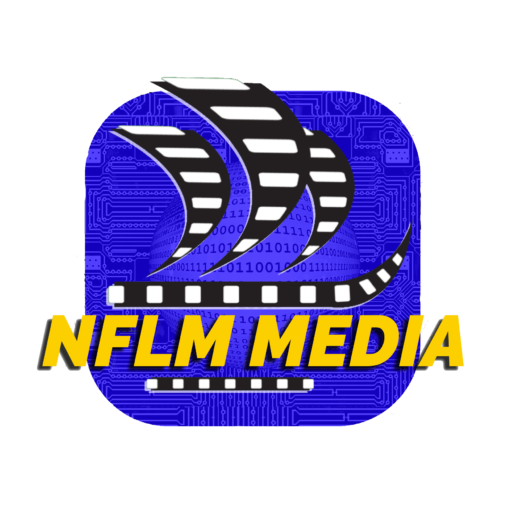In today’s digital age, social media marketing is essential for small businesses looking to expand their reach, engage with customers, and drive sales. However, navigating the myriad of available social media tools can be overwhelming. This ultimate guide will help you discover the best social media marketing tools for small businesses, ensuring you have the right resources to succeed.
Why Social Media Marketing is Crucial for Small Businesses
Social media platforms have become powerful marketing tools, offering small businesses an affordable and effective way to connect with their target audience. By leveraging social media, small businesses can:
- Increase Brand Awareness: Regular posts and engagement on social media platforms help keep your brand top-of-mind for consumers.
- Drive Traffic to Your Website: Sharing content and promotions on social media can direct more visitors to your website.
- Boost Sales: Social media campaigns and ads can lead to increased conversions and sales.
- Engage with Customers: Social media provides a platform for real-time interaction with customers, building stronger relationships and loyalty.
- Gain Insights: Analytics tools available on social media platforms help you understand your audience and measure the effectiveness of your campaigns.
Top Social Media Marketing Tools for Small Businesses
To effectively manage and optimize your social media marketing efforts, here are some of the top tools available:
1. Social Media Scheduling Tools
Hootsuite: Hootsuite is one of the most popular social media management tools, offering a comprehensive solution for scheduling posts, monitoring mentions, and analyzing performance across multiple social media platforms. With Hootsuite, you can plan your content calendar in advance, ensuring consistent and timely posts.
Buffer: Buffer is known for its simplicity and ease of use. It allows you to schedule posts, track performance, and collaborate with team members. Buffer’s intuitive interface makes it a great choice for small businesses looking to streamline their social media efforts.
Sprout Social: Sprout Social combines powerful scheduling capabilities with robust analytics and reporting features. It also offers social listening tools to help you stay on top of industry trends and customer feedback.
2. Social Media Analytics Tools
Google Analytics: While not specifically a social media tool, Google Analytics is invaluable for tracking the traffic and conversions generated from your social media efforts. By setting up UTM parameters, you can measure the effectiveness of your social campaigns and adjust your strategy accordingly.
Sprout Social: Sprout Social’s analytics features provide detailed insights into your social media performance, helping you understand what content resonates with your audience. You can track metrics like engagement, reach, and follower growth.
Iconosquare: Iconosquare specializes in Instagram and Facebook analytics. It offers in-depth performance metrics, competitor analysis, and hashtag tracking, making it a must-have tool for businesses focusing on these platforms.
3. Content Creation Tools
Canva: Canva is a versatile graphic design tool that allows you to create stunning social media graphics with ease. With a wide range of templates and design elements, even those with no design experience can produce professional-quality visuals.
Adobe Spark: Adobe Spark is another excellent tool for creating social media content. It offers features for creating videos, graphics, and web pages, making it a comprehensive solution for content creation.
Lumen5: Lumen5 turns your blog posts and articles into engaging videos. This tool uses artificial intelligence to match your content with relevant visuals, making video creation quick and easy.
4. Social Media Management Tools
HubSpot: HubSpot offers an all-in-one marketing platform that includes social media management. You can schedule posts, monitor engagement, and analyze performance, all within the same platform. HubSpot also integrates with your CRM, providing a holistic view of your marketing efforts.
Zoho Social: Zoho Social is designed for small businesses and agencies, offering scheduling, monitoring, and analytics features. Its intuitive dashboard and affordable pricing make it a great option for budget-conscious businesses.
Agorapulse: Agorapulse offers a robust suite of social media management tools, including scheduling, monitoring, and reporting. It also provides social listening capabilities and allows you to manage all your social media messages in one place.
5. Affordable Social Media Tools
For small businesses on a tight budget, here are some affordable options:
Later: Later is a social media scheduling tool focused on visual content, particularly Instagram. It offers a free plan with basic scheduling features and affordable paid plans for more advanced capabilities.
Planoly: Planoly is another cost-effective option for scheduling and managing Instagram content. It offers a visual planner and basic analytics, making it easy to plan and execute your Instagram strategy.
PromoRepublic: PromoRepublic provides scheduling, content creation, and analytics features at an affordable price. It also offers a library of customizable templates to streamline your content creation process.
Implementing Social Media Marketing Tools
Choosing the right tools is only the first step. To maximize their effectiveness, follow these implementation tips:
- Define Your Goals: Clearly outline what you hope to achieve with your social media marketing efforts. Whether it’s increasing brand awareness, driving traffic, or boosting sales, having specific goals will guide your strategy.
- Create a Content Calendar: Plan your social media content in advance using a content calendar. This helps ensure consistent posting and allows you to align your content with key dates and promotions.
- Monitor and Adjust: Regularly review the performance of your social media campaigns using analytics tools. Identify what’s working and what’s not, and adjust your strategy accordingly.
- Engage with Your Audience: Social media is a two-way street. Respond to comments, messages, and mentions promptly to build stronger relationships with your audience.
- Stay Updated: Social media trends and tools are constantly evolving. Stay informed about new features and best practices to keep your strategy fresh and effective.
Conclusion
Social media marketing tools are essential for small businesses looking to enhance their online presence and achieve their marketing goals. By leveraging tools for scheduling, analytics, content creation, and management, you can streamline your efforts and maximize your results. Remember to define your goals, create a content calendar, monitor performance, engage with your audience, and stay updated on industry trends. With the right tools and strategy, your small business can thrive in the competitive world of social media marketing.





